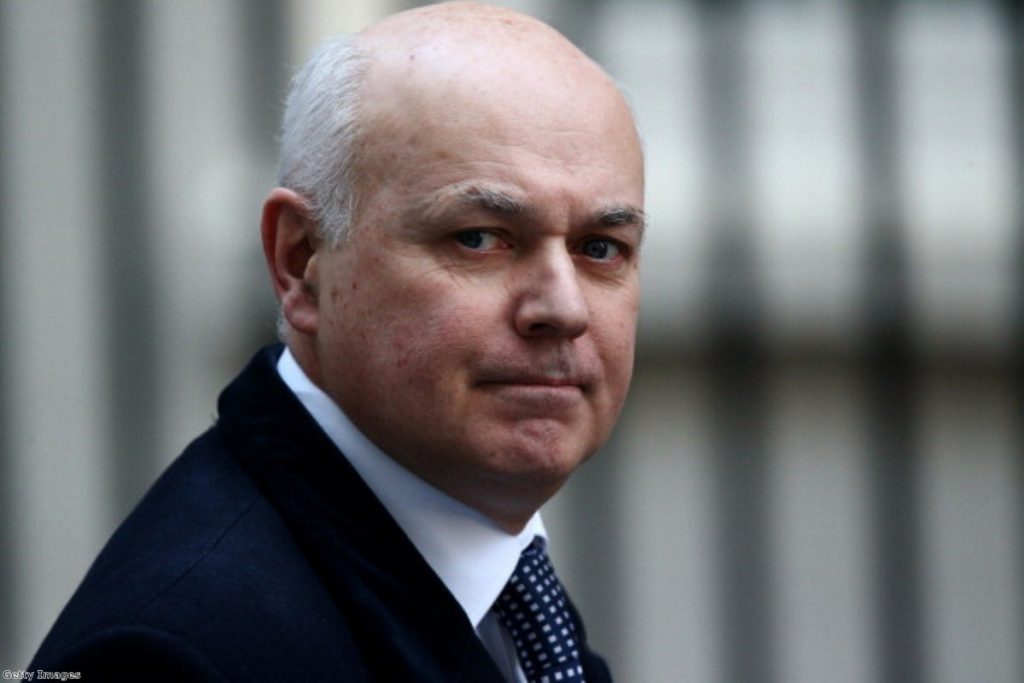Iain Duncan Smith used false statistics to justify disability benefit cuts
The Department for Work and Pensions (DWP) repeatedly made false claims about the numbers of people living on disability benefits, the official statistics watchdog has found.
Ministers at the DWP repeatedly claimed that the majority of people on disability living allowance (DLA) were given benefits for life without any supporting medical evidence.
According to press releases sent out by the department: "more than 50% of decisions on entitlement are made on the basis of the claim form alone, without any additional corroborating medical evidence."
However, the UK Statistics Authority (UKSA) found that the real percentage of claims passed without supporting medical evidence was just 10%.


The DWP also claimed that "under the current system of DLA, 71% of claimants get indefinite awards without systematic reassessments."
However the UKSA found that in the last two years of the DLA, just 23% and 24% of claimants were given indefinite awards.
The DWP accept that their claims were "ambiguous" and "had not been rechecked by the Department's analysts as is the usual practice."
The findings, uncovered by Channel Four News and seen in full by Politics.co.uk, followed a complaint by the charity Parkinson's UK.
"The Department of Work and Pensions has a long track record of misusing statistics when it comes to the benefits system, and it’s clear this was a tactic to vindicate further welfare cuts," Parkinson's UK policy advisor Donna O'Brien said.
"People with Parkinson's who claimed DLA have told us supporting medical evidence was crucial due to a woeful knowledge of the condition amongst assessors, and it is absurd that the Government was trying to imply that anyone going through the system had an easy ride."
This is the second time in the past year that Iain Duncan Smith has come under fire for the use of false statistics to justify cuts to benefits.
Last year Duncan Smith claimed that 8000 people who had been affected by the benefits cap had moved back into work.
The UKSA found that this figure was "unsupported by the official statistics."
At the time Iain Duncan Smith dismissed the findings, saying that he "believed" that he was right anyway.
"I believe that this to be right, I believe that we are already seeing people going back to work who were not going to go back to work," he said.









